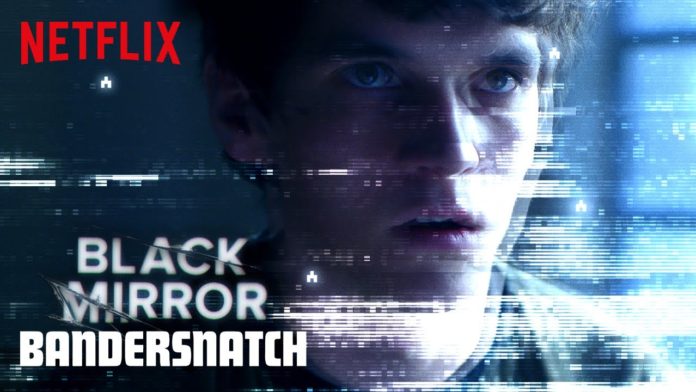Bandersnatch, a standalone entry in the sci-fi anthology series Black Mirror, which is known for its commentary on technology’s influence on society, is Netflix’s first feature-length foray into interactive entertainment. Allowing the viewer to make several choices throughout the film, the movie boasts five different endings.
But the film’s novelty quickly wears off as a convoluted and repetitive story yields few real choices and feels too much like a gimmick as it tires on.
The story follows Stefan (Fionn Whitehead), a computer programmer on the verge of getting a publishing deal with a big-shot video game company, Tuckersoft, in 1984. Stefan struggles with mental illness and a troubled relationship with his father, whom he blames for his mother’s death in a train accident. Stefan’s hermit-like lifestyle causes him to deteriorate into madness as he toils away coding his game, with the ultimate fate of the project in the hands of the viewer.
The interactive elements in Bandersnatch make for some clever moments, especially once Stefan begins to catch on to the fact that someone else—the viewer—is controlling his actions. The character’s awareness of the viewer’s choices tears down the fourth wall and brings a layer of realism to the film. As I watched, it almost felt as though Stefan were a real person whose fate was completely at the mercy of the decisions I made for him, giving Bandersnatch layers of intimacy and a completely different feel from traditional movies.
Despite this, the irony of the interactive format is that influencing the story is more of an illusion than one would suspect. Many choices lead to dead ends, such as early on in the story when Stefan is offered a job at Tuckersoft. No matter how many times the viewer chooses to accept the proposal, the film starts back at the same moment until a different option is chosen. It’s disheartening to know that the first major choice in the film is limited in its pathways. Why couldn’t I explore Stefan’s story working in the Tuckersoft office? I was left with the impression that the film’s scope could have been broadened to better serve the interactive format.
Furthermore, many of the choices feel trivial to the outcome of the story; the viewer is given the option to choose which cereal Stefan eats for breakfast, what song he listens to, and so on. While novel at first, the filler choices make one wonder how many of the choices really matter in terms of narrative and how many are there for show.
Once viewers have reached their chosen ending, they are given the choice to go back to a pivotal moment in the story and choose a different path to an alternative ending. I reached four of the five total endings during my time with the film, all of which ended the narrative in wildly distinctive ways.
(Spoiler alert: Elements of the movie’s endings will be discussed.) The endings I reached fail to wrap up the story in a satisfying manner, often relying on typical twist endings that feel cheap and lazy. In one, Stefan rots away in jail, his game never finished; in another, he gets into a fight with his therapist (who pulls out nunchucks) in a laughable kung-fu tone shift; and in another, a confused Stefan climbs out of a window, revealing his world to be a movie set. While viewers may choose to finish their viewing when they first reach the credits, it’s safe to assume they’ll choose to seek out the rest of the endings in an attempt to find a conclusion that does justice to the characters and the narrative they’ve been introduced to in the opening act of the film.
While Bandersnatch could be excused as a preliminary experiment into the world of interactive film, it doesn’t negate the fact that the movie often focuses too heavily on the choices that the viewer can make as opposed to developing the narrative cohesively. It’s unfortunate, as a well-crafted interactive film that uses the viewer’s choices as an effective storytelling tool could revolutionize the world of cinema. Bandersnatch offers little more than an opportunity to see what all the hype is about, and, while centered around an entertaining concept, the film fails to live up to the anticipation generated by its eye-catching selling point.













This is a really interesting and well-written analysis of the film. Your critique is very profound and perceptive. I enjoyed this article a lot; I hope you write more reviews in the future!